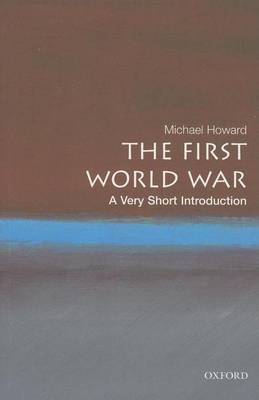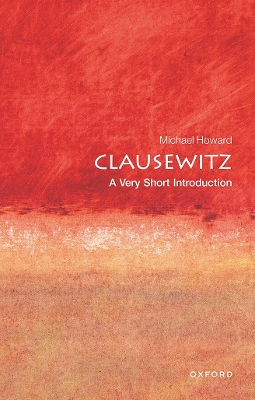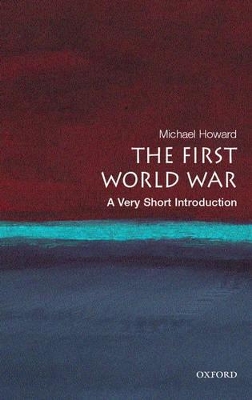Very Short Introductions
3 total works
Karl von Clausewitz's study On War was described by the American strategic thinker Bernard Brodie as 'not simply the greatest, but the only great book about war'. It is hard to disagree. Even though he wrote his only major work at a time when the range of firearms was fifty yards, much of what he had to say remains relevant today. Michael Howard explains Clausewitz's ideas in terms both of his experiences as a professional soldier in the Napoleonic Wars, and
of the intellectual background of his time.
ABOUT THE SERIES: The Very Short Introductions series from Oxford University Press contains hundreds of titles in almost every subject area. These pocket-sized books are the perfect way to get ahead in a new subject quickly. Our expert authors combine facts, analysis, perspective, new ideas, and enthusiasm to make interesting and challenging topics highly readable.
of the intellectual background of his time.
ABOUT THE SERIES: The Very Short Introductions series from Oxford University Press contains hundreds of titles in almost every subject area. These pocket-sized books are the perfect way to get ahead in a new subject quickly. Our expert authors combine facts, analysis, perspective, new ideas, and enthusiasm to make interesting and challenging topics highly readable.
By the time the First World War ended in 1918, eight million people had died in what had been perhaps the most apocalyptic episode the world had known. This Very Short Introduction provides a concise and insightful history of the 'Great War', focusing on why it happened, how it was fought, and why it had the consequences it did.
It examines the state of Europe in 1914 and the outbreak of war; the onset of attrition and crisis; the role of the US; the collapse of Russia; and the weakening and eventual surrender of the Central Powers. Looking at the historical controversies surrounding the causes and conduct of war, Michael Howard also describes how peace was ultimately made, and the potent legacy of resentment left to Germany.
ABOUT THE SERIES: The Very Short Introductions series from Oxford University Press contains hundreds of titles in almost every subject area. These pocket-sized books are the perfect way to get ahead in a new subject quickly. Our expert authors combine facts, analysis, perspective, new ideas, and enthusiasm to make interesting and challenging topics highly readable.
It examines the state of Europe in 1914 and the outbreak of war; the onset of attrition and crisis; the role of the US; the collapse of Russia; and the weakening and eventual surrender of the Central Powers. Looking at the historical controversies surrounding the causes and conduct of war, Michael Howard also describes how peace was ultimately made, and the potent legacy of resentment left to Germany.
ABOUT THE SERIES: The Very Short Introductions series from Oxford University Press contains hundreds of titles in almost every subject area. These pocket-sized books are the perfect way to get ahead in a new subject quickly. Our expert authors combine facts, analysis, perspective, new ideas, and enthusiasm to make interesting and challenging topics highly readable.


